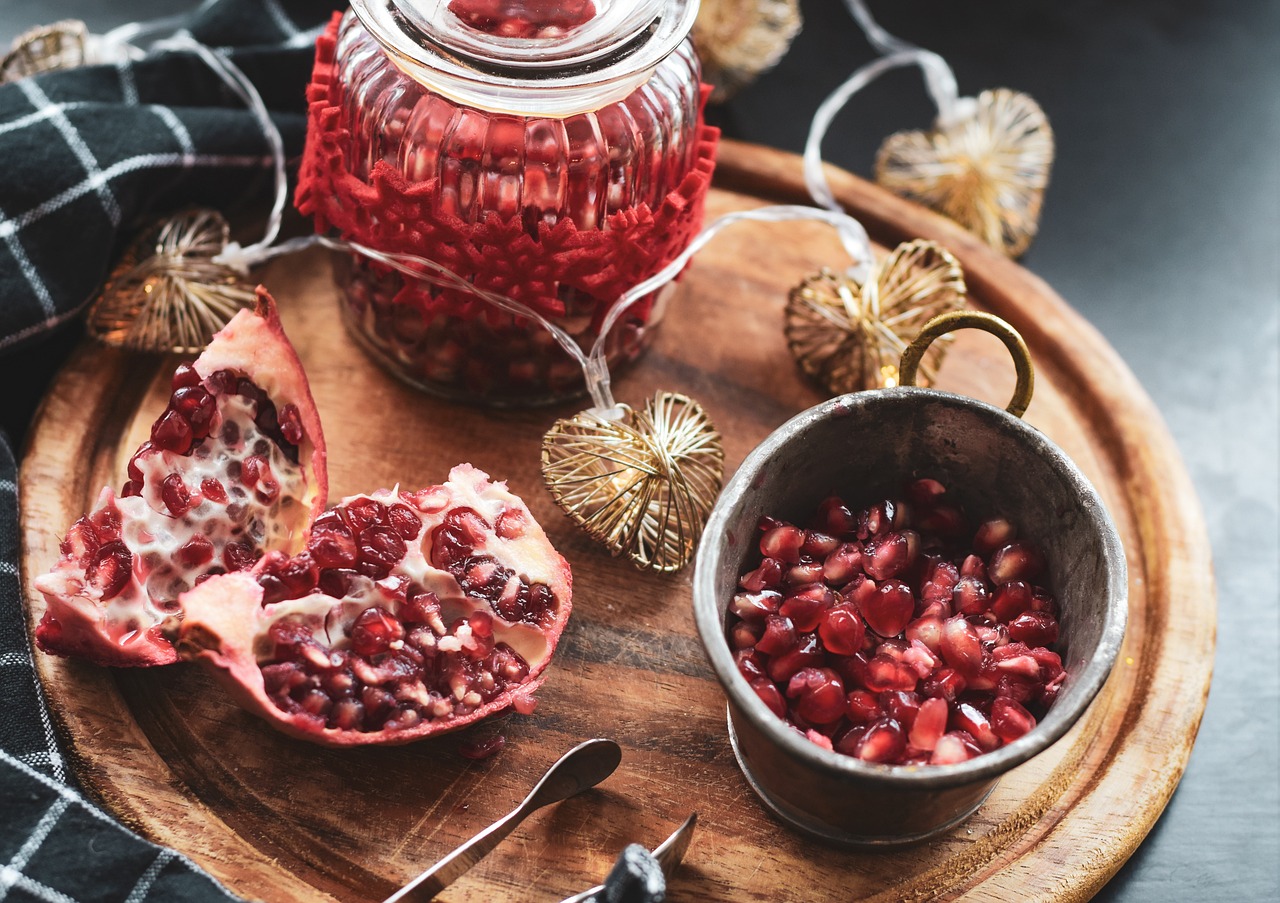The pomegranate, also known as Punica granatum, is an ancient fruit with multiple beneficial properties, much loved in the culinary tradition of many cultures. Native to the regions of Iran and northern India, the pomegranate has been a symbol of fertility, prosperity and good fortune for centuries. However, its value is not limited only to folklore and popular beliefs. Thanks to scientific researches and growing interest in nutrition, pomegranate is emerging as a superfood with many benefits for human health.
The history of the pomegranate in tradition:
The pomegranate is one of the oldest cultivated plants in the world, with a history dating back over 4,000 years. In ancient civilizations such as Egypt, Greece and Rome, the pomegranate was associated with divinity, fertility and love. In folklore, this juicy fruit was often linked to mythical stories and legends. For example, in Greek mythology, Persephone, the goddess of spring, was trapped in the underworld after eating some pomegranate seeds. This event represented the arrival of autumn and winter, when nature enters a phase of hibernation.
The pomegranate in cooking and traditional medicine:
Over the centuries, the pomegranate has become a treasured ingredient in the cuisine of many cultures. Its red and juicy buds, called “arils”, are used to prepare drinks, sweets, sauces and salads, giving them a touch of color and a distinctive flavour. In some regions, pomegranate juice has been used in the preparation of remedies to improve digestion, soothe sore throats and relieve gastrointestinal disorders.
Recent scientific discoveries:
In recent decades, the pomegranate has captured the attention of the scientific community for its potential health benefits. Numerous studies have investigated the bioactive compounds present in pomegranate fruit and juice, discovering interesting antioxidant, anti-inflammatory and anti-cancer properties.
Antioxidant Power: Pomegranates are rich in antioxidants, including polyphenols, flavonoids and anthocyanins, which can help neutralize free radicals and reduce oxidative stress in the body.
Cardio-Protective Effects: Research suggests that consuming pomegranate or its juice may help improve cardiovascular health by helping to lower blood pressure and prevent the buildup of bad cholesterol in the arteries.
Potential anticancer effects: Some preliminary studies have suggested that compounds present in pomegranate may have anticancer properties, reducing the risk of certain types of cancers.
Brain Health Benefits: The antioxidant substances in pomegranate may also play a role in protecting the brain from oxidative stress, potentially helping to prevent neurodegenerative diseases such as Alzheimer’s.
Immune System Support: The wealth of nutrients in pomegranate, including vitamin C, could help support the immune system and protect the body from infections.
